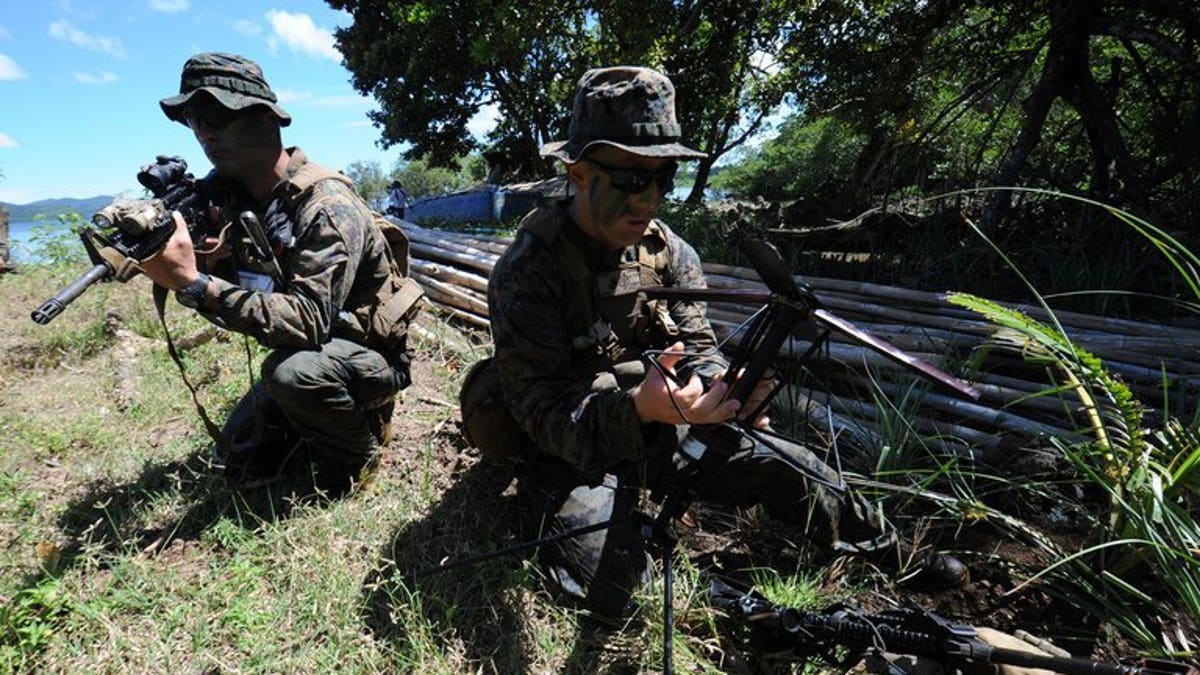
US soldiers prepare communication equipment during a joint exercise on the shore of Ulugan Bay, on Palawan island, on April 25, 2012. The Philippines and the United States have begun talks aimed at allowing a bigger US military presence on the soil of its key Asian ally, amid tensions with China. (AFP/File)
MANILA (AFP) – The Philippines and the United States began talks on Wednesday aimed at allowing a bigger US military presence on the soil of its key Asian ally, amid tensions with China.
The talks aim to draw up rules for more rotational, or temporary, deployments of US forces and military assets in the Philippines.
The Philippines has been looking to the United States for military and political support as part of efforts to protect its claims to South China Sea waters from an increasingly assertive China.
Although officials did not name China on Wednesday, President Benigno Aquino's office said a bigger US presence would help to build the Philippine military's capabilities.
"We want to build up a minimum credible defence. We understand that when the modalities have been thrashed out, it will help towards that," presidential spokeswoman Abigail Valte told reporters.
In a statement on the opening of the talks, the lead Philippine negotiator also highlighted the importance of them to defending the country's territory.
"We would like to assure the Filipino people that your government is committed to defending and protecting the country's sovereignty and territorial integrity," Assistant Foreign Secretary Carlos Sorreta said.
Eric John, a senior US State Department negotiator, is leading the talks for the American side.
The opening round of the talks were for one day. Further rounds are expected in the coming weeks and months. The Philippines has said it wants the deal concluded before the end of the year.
The Philippines had hosted tens of thousands of US soldiers at two bases north of Manila, but they were forced to leave in 1992 after the Senate voted to end their lease contracts amid strong anti-American sentiment.
A new agreement that went into force in 1999 allowed US troops to return to the Philippines for joint military exercises involving several thousand members of the US military every year.
US special forces have also been rotating through the southern Philipines since 2002 to help Filipino soldiers against Islamic militants, with the maximum number there at any one time believed to be about 600.
The envisaged deal would see many more exercises, although the Philippines has insisted it will not allow a permanent US presence. This would require a change to the constitution.
The Philippines has accused China of building its military presence in the South China Sea in recent years.
China claims most of the sea, including waters close to the shores of its neighbours such as the Philippines.
While the United States has insisted it does not take sides in the dispute, it has been seeking to rebuild its military footprint in the Philippines as part of President Barack Obama's strategic "pivot" to Asia.
